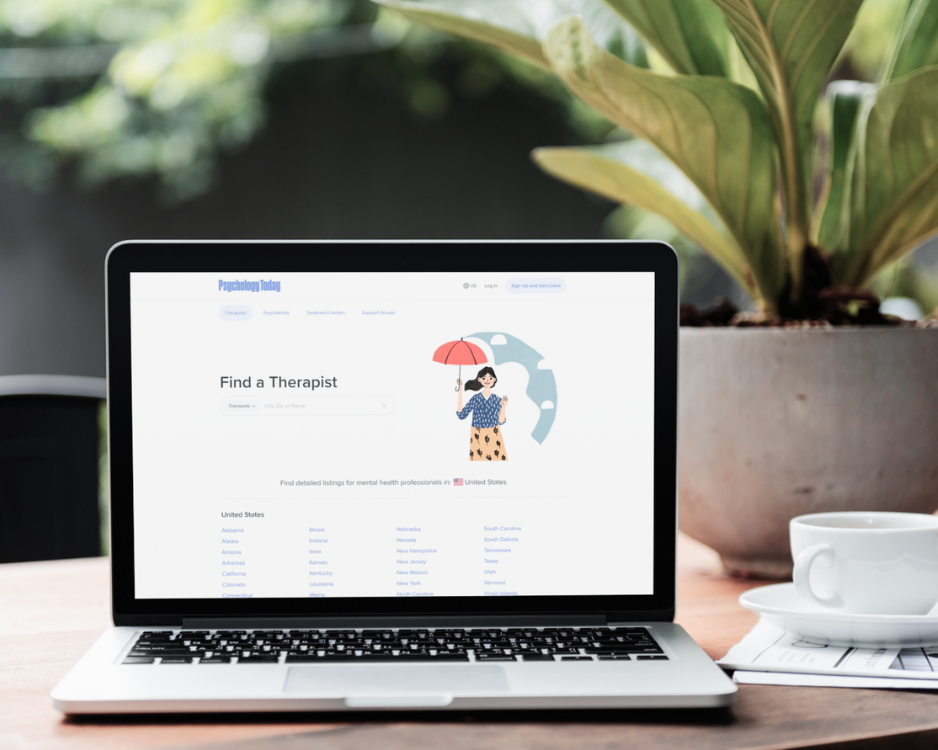How to Optimize Your Psychology Today Profile
For private practice owners, your online presence is what sets you apart from the rest. That means your website, your social media, your email signature, and even your Google Business Profile are all part of the story you’re telling.
And one of the most essential pieces of that story for therapists? Your Psychology Today profile.
It’s not just a directory listing—it’s a chance to speak directly to the people you want to help. Properly optimized, your profile can be a strategic part of your marketing, creating a sense of connection and credibility, and making it easier for prospective clients to say, "Yes, I think this person could help me."
Why Your Psychology Today Profile Matters for Private Practice Growth
If you're in private practice, your Psychology Today profile isn’t just a nice-to-have, it’s actually an impactful tool you can use to support steady, sustainable growth. Here’s why it matters:
1. It’s Where People Are Already Looking
Psychology Today is one of the most-visited therapist directories online. People who land there are actively looking for support. Being listed increases your visibility in local searches, helping the right clients find you, especially in competitive areas.
2. It Builds Trust
Your profile acts as your introduction. When it reflects your values and tone, prospective clients feel more confident that you're someone who will understand and support them. And adding your Psychology Today Verified badge to your website can help build trust with potential clients by showing that your credentials have been independently reviewed. It’s a small visual cue that reinforces your professionalism and legitimacy.
3. It Supports SEO & Professional Referrals
Linking to your Psychology Today profile from your website (and linking back to your website from your profile) creates a strong SEO connection between the two, improves visibility in search results, and offers prospective clients more ways to learn about you—wherever they start their search.
4. It’s a Great Starting Point
If you’re just launching your private practice and don’t have a website yet, your Psychology Today profile can function as a simple and effective digital home base—at least until you're ready to build something more custom.
5. It Grows with You
Your profile shouldn’t be static. You should update it as your niche evolves, add specialties, change your tone or photo, and keep it aligned with your work as it deepens over time.
Start With Who You Are (Not Just What You Do)
Too many profiles read like resumés. While credentials are important, clients are really looking for someone they can connect with. So instead of leading with your degrees, try something more human:
“I help people who feel overwhelmed, stuck, or disconnected reconnect with what matters most to them.”
This kind of language shows empathy and clarity. It speaks directly to the lived experience of your clients.
Make the First Sentence Count
Your intro shows up in search previews—it’s prime real estate. Use it to speak to the reader’s pain points or hopes.
“If anxiety feels like it’s running your life, I’m here to help you find peace.”
“You don’t have to navigate grief or trauma alone. Let’s walk through it together.”
Avoid starting with “Welcome to my profile.” Instead, lead with what you help people feel or achieve.
Use SEO Naturally
Yes, your Psychology Today profile gets indexed by search engines. But SEO should enhance clarity, not clutter your message.
Use keywords like:
“Philadelphia trauma therapist”
“anxiety support for new moms”
“EMDR for PTSD”
Weave them into conversational, compassionate copy, not just a list of techniques.
Show Your Unique Style of Care
Most clients want to know how it feels to work with you.
Consider:
What’s the vibe in your office like?
What do clients often say about working with you?
What values guide your practice?
Example:
“My approach is warm, collaborative, and rooted in real-life tools that help you create meaningful change.”
Upload a Friendly, Approachable Photo
Your photo can build instant trust—or push people away. Choose one that’s:
Authentically you
Well-lit and inviting
Reflective of your real presence, not overly polished
Avoid stiff or corporate-looking headshots. Your future clients are looking for a real human being, not a stock photo. And skip the casual selfie; instead opt for a clear, natural-looking photo that feels both approachable and professional.
Keep It Updated
A forgotten profile sends the wrong message. Revisit yours regularly to:
Update services or availability
Refresh your tone, photo, and any outdated links
Reflect new specialties or offerings
If your focus has shifted (for example, to somatic therapy or working with a new population), make sure your profile reflects that.
Link Back to Your Website
Your website and Psychology Today profile should feel like they’re in conversation with each other. While Psychology Today helps you get found, your website is where trust deepens. Make sure your profile includes a link to your site so clients can:
Learn more about your unique approach
Read your blog and FAQs
Book a consultation or intake session
Your Psychology Today profile should feel like you. When you write from a place of warmth, clarity, and authenticity, the right people will notice. And they’ll reach out.
Need Help Crafting Your Dream Website?
At Mindful Design Solutions, I help therapists like you create online spaces that feel grounded, inviting, and aligned with the work you do. Whether you need help refining your Psychology Today profile or want a website that truly reflects your values—I’m here to help!
Get in touch to schedule a free consultation.
Related Posts







